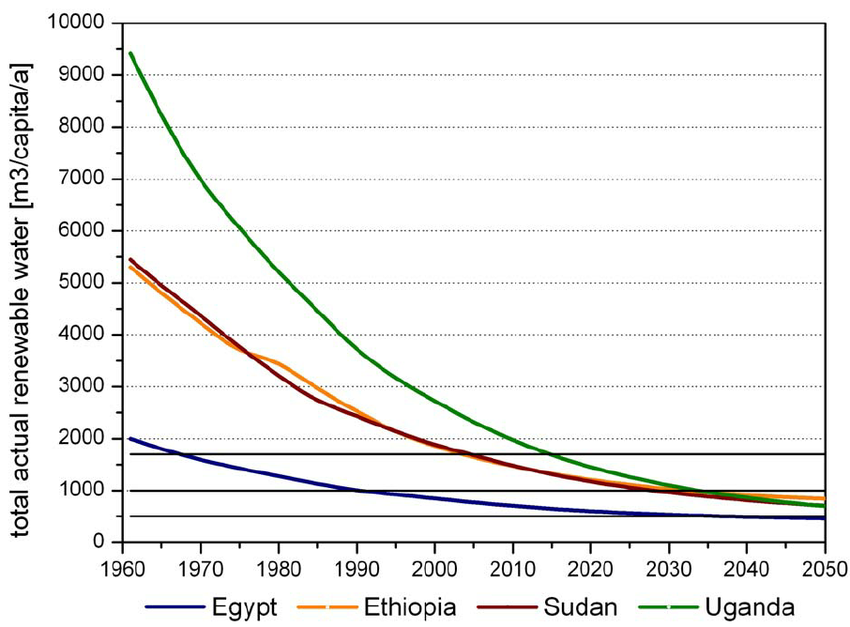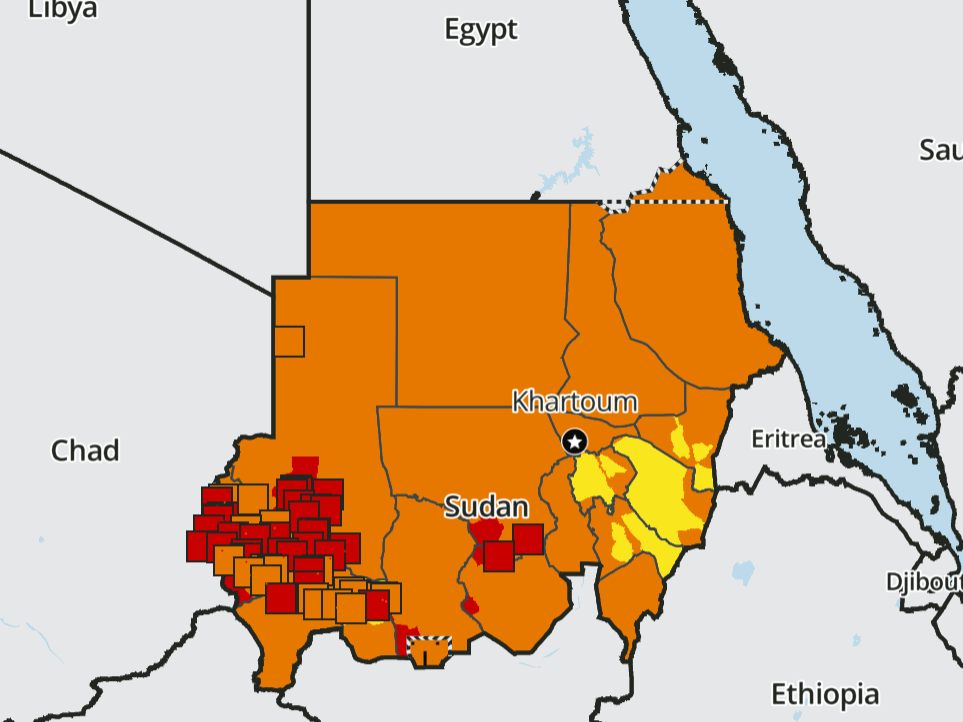When Water Fuels Instability: Sudan’s Climate Crisis and Its Ripple Effect on Regional Security
In Sudan, water scarcity has shifted from an environmental issue to a national security threat. Erratic rainfall, droughts, and rising temperatures have intensified competition over the Nile and other vital sources, straining communities and fueling regional tensions with neighbors like Egypt and Chad. The crisis highlights how climate stress can drive conflict, displacement and instability across borders.
The Human Cost of Water Scarcity
Sudan faces numerous water-related problems, ranging from drought and pollution to poor sanitation, a lack of safe drinking water and conflict. These shifts exacerbate water scarcity, particularly in regions like Darfur and South Kordofan, where access to clean water is already limited, with over 40% of families lacking basic water services, 67% without basic sanitation and 75% do not have access to basic hygiene (World Bank). The scarcity of water resources not only threatens agricultural productivity but also undermines the livelihoods of millions who depend on these resources for survival.
All Nile Basin countries are projected to face increasing water stress, assuming constant water availability of 92. The horizontal black lines represent the Falkenmark thresholds.
War’s Toll on Water and Food Security
The ongoing conflict in Sudan between the Sudanese Armed Forces and the Rapid Support Forces has inflicted near-catastrophic impacts on water supply systems. Armed confrontations which are driven by weak governance, political instability and competition over resources have damaged critical infrastructure, including water treatment plants and distribution networks (Conflict and Environment Observatory). This destruction has left millions without access to safe drinking water, increasing the risk of waterborne diseases like cholera and exacerbating the humanitarian crisis. Sudan already has one of the highest rates of child malnutrition in the world according to UNICEF, and 24.6 million people facing acute hunger (World Food Programme).
Cross-Border Impacts of Displacement
Sudan’s severe water scarcity, has forced many Sudanese to flee, with a significant number seeking refuge in Egypt. As stated by UN Egypt, Egypt has welcomed over 1.5 million Sudanese. This influx has placed pressure on Egypt’s housing, healthcare, education, and public services, while heightening political and security concerns along the border. Egypt is more vulnerable to cross-border incursions by armed groups, arms smugglers, and people traffickers as a result of the conflict (Middle East Eye).
In Chad, an unprecedented number of refugees have arrived as a result of the turmoil in Sudan; Chad now hosts more than 830,000 Sudanese as stated by Acaps. This has put an enormous pressure on the natural, economic, and social resources of host communities, especially for the 1.9 million people who live in eastern Chad, where access to food, water, and medical care is severely limited. The World Health Organization warned on Friday that cholera cases in Sudan are set to rise and could spread to neighboring countries, including Chad, which hosts hundreds of thousands of refugees from Sudan's civil war in crowded conditions (Reuters).
October 2023
October 2024
Policies, Implementation, and Effectiveness
Sudan has implemented several policies and initiatives to address its water scarcity and its regional security implications. The Humanitarian Needs and Response Plan 2025 and the Sudan Crisis Response Plan 2024–2025 focus on improving water, sanitation, and hygiene services in conflict-affected regions and integrating water challenges into broader humanitarian strategies. As the 2025 UN report states, Sudan is gradually improving: UNICEF is providing clean water, reopening schools, and supporting over 1.3 million children, though nutrition and displacement remain serious challenges. However, with ongoing conflict, political instability, and economic crises, effectively implementing these policies remains difficult, and the country continues to face significant humanitarian and security challenges.
Conclusion
Sudan’s water crisis illustrates how environmental stress can rapidly evolve into a national and regional security threat. The resulting refugee flows, resource-based conflicts, and humanitarian crises demonstrate that water scarcity is no longer solely an environmental concern—it is a catalyst for instability that transcends borders. While Sudan has introduced policies and regional cooperation efforts to mitigate these challenges, ongoing conflict and institutional limitations continue to hinder effective implementation. Addressing Sudan’s water crisis requires urgent, coordinated action that combines humanitarian aid, sustainable resource management, and regional diplomacy to prevent further destabilization.
Food insecurity map in Sudan (Fews Net)




